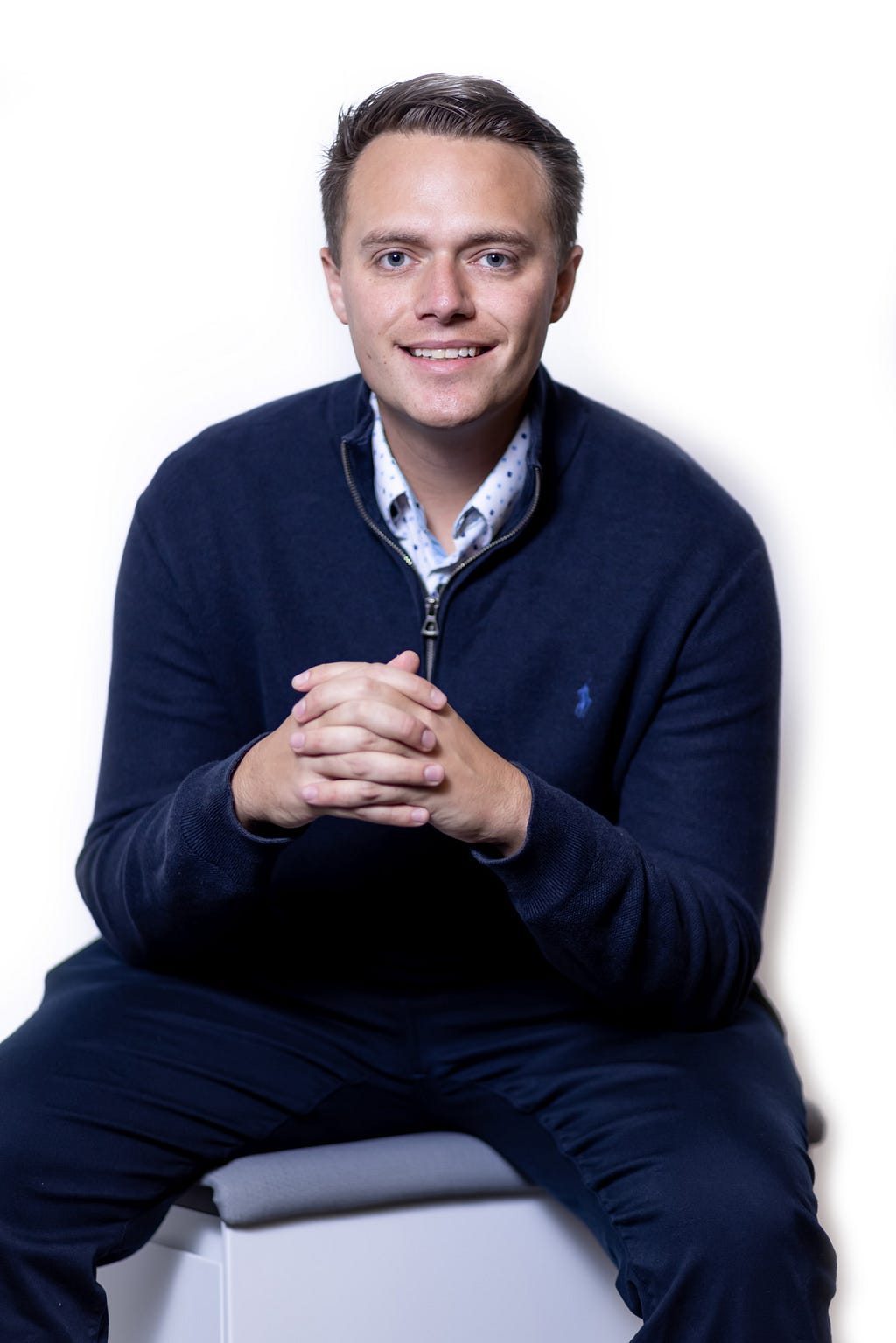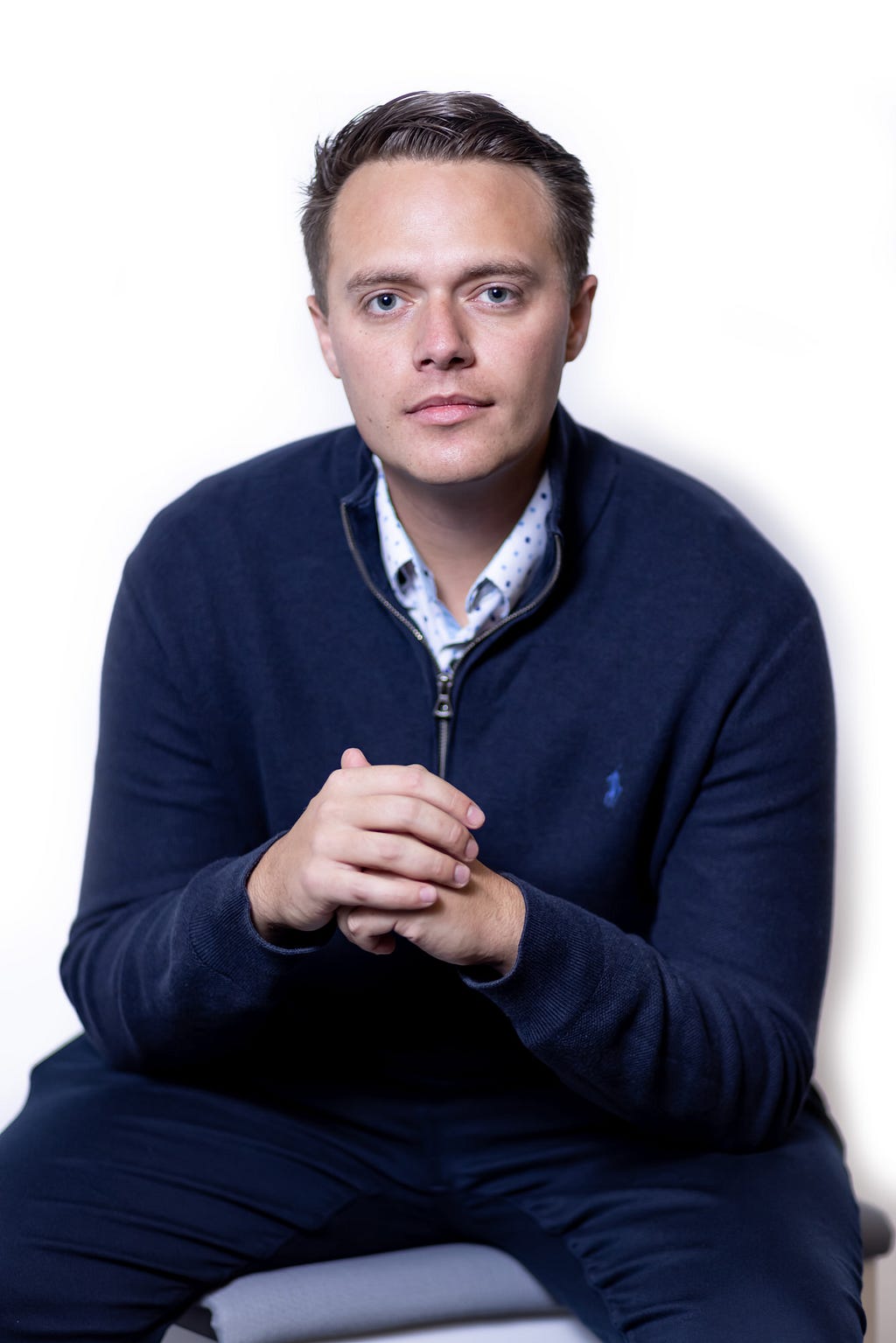Luke Sophinos of CourseKey : 5 Things That Should Be Done To Improve The US Educational System

I’m not intent on changing the US educational infrastructure, only in bringing to light the fact that there is more than one path in higher education, and it’s not college or nothing. My own story of not getting the most out of the college experience taught me this. Career education or trade school can be an outstanding opportunity that will put young adults in our country on a highly successful and entrepreneurial path. And, as previously mentioned there is a strong need in our economy today for skilled talent in a multitude of essential vocations.
As a part of my interview series about the things that should be done to improve the US educational system I had the pleasure to interview Luke Sophinos.
Luke Sophinos is the Founder and CEO of CourseKey, a b2b SaaS company that provides compliance and retention software to vocational training businesses. Prior to CourseKey, Luke worked in venture capital and was selected as a Thiel Fellow. Additionally, Sophinos was named a top thirty emerging entrepreneur in the United States by Inc. Magazine and named to the 2019 Forbes 30 Under 30 list.
Thank you so much for doing this with us! Our readers would love to “get to know you” a bit better. Can you share the “backstory”behind what brought you to this particular career path?
Sure. I founded CourseKey in 2015 to promote educational opportunities for young adults who had a different path in mind than a four-year college degree. Personally, I didn’t love my own college experience, and quickly knew it wasn’t the right environment for me. So I applied for and was granted a Thiel Fellowship — which is a program that supports students in building companies instead of sitting in a classroom.
Knowing that not everyone has that same option, my co-founder and I put our heads together to figure out how to help modernize the career education — or trade school — path. We felt that this was a segment of higher education that was being left out of the conversation.
We wanted to build the first vocational school management system to help institutions track routine metrics like attendance and grading, enhance the student experience with better communication tools, and identify students who might be at risk of dropping out.
CourseKey’s mission is to partner with leading career schools to enable the most successful vocational workforces on the planet.
Can you share the most interesting story that happened to you since you started your career? Can you tell us what lesson you learned from that?
My co-founder Fadee Kannah is a lifelong entrepreneur and inventor (and computer science whiz) and his inspiration has been one of my more interesting career highlights.
Initially tinkering with computers in the small Iraqi village where he grew up. Fadee immigrated to the U.S. at the age of fifteen, taught himself English in a few months, and received a full-ride scholarship to college.
Fadee managed to hack into the university’s enrollment system to get into certain classes because required classes were extremely difficult to get into. Some students needed 5–6 years to graduate simply because they couldn’t enroll in their required courses — which was insane. The takeaway here is that higher ed doesn’t always work as intended, and Fadee and I knew there had to be another good alternative. That’s ultimately where the idea for CourseKey came from.
Are you working on any exciting new projects now? How do you think that will help people?
CourseKey and CECU (Career Education Colleges and Universities) recently started The College to Career Initiative which I’m really excited about. The mission is to unite leaders in the industries that need skilled talent and the vocational schools that produce it.
For example, we recently recognized a scholarship graduate of Universal Technical Institute (UTI) in Orlando who went on to secure a position at Toyota at a field event along with Imagine America Foundation and Blue Recruit. That’s just one example of how we collectively are helping young adults gain in-demand skills training and land dream jobs.
Can you briefly share with our readers why you are an authority in the education field?
I guess you could say I educated myself to become an authority on career education. My own journey in higher ed made me realize there were other paths that many high school kids aren’t necessarily exposed to.
What we’ve learned since starting CourseKey is that there’s a tremendous mismatch between the skills employers need and what they can find in the job market. Many of our shortages today stem from problems in the supply chain, but it’s the supply of qualified labor that’s most difficult for our economy to solve. The lack of supply of goods is a result, not a cause. This is the problem that our education system needs to solve.
Ok, thank you for that. Let’s now jump to the main focus of our interview. From your point of view, how would you rate the results of the higher education system in the US?
College and university can be a fantastic route for many people, but it doesn’t have to be the de facto path.
My mission is to demonstrate that career education isn’t a consolation prize; it isn’t for those who can’t make it in a college program or who have to settle for a lesser career. Quite often, the starting salary after graduation from a vocational program is on par with that of a four-year graduate. It may even be higher — and graduates of vocational programs typically carry far less student debt because these programs last from one-to-two years in duration.
Welders, for example, can make a really good living! In my experience, some of these students started out as fast-food cashiers before heading to welding school. For many young adults, completion of trade school is a gateway out of the minimum wage job category, and into a career with greater stability and earning potential.
There are a host of lucrative trade careers that may better suit many people’s ambitions than, say, a liberal arts degree. Construction, trucking, allied healthcare, plumbing, HVAC, welding, beauty and wellness, hairstyling/barber, just to name some of the more popular ones.
Not to mention, most colleges don’t really prepare students for an entrepreneurial path of running one’s own business, while many trade schools incorporate such training.
It’s time vocational school or career education found a place in the national discourse on higher education, especially as the US is facing a massive skills shortage in many of these areas.

Can you identify some key areas of the career education system in the US that should be prioritized for improvement? Can you explain why those are so critical?
- Enrollment — Since not everyone thinks of career education as a viable path over college, we aim to increase awareness about the opportunities it can afford across so many verticals. CourseKey also makes the actual process of enrollment as easy as possible. with our software offering in partnership with the schools.
- Retention — Today 29% of vocational students fail to graduate. That’s a big hole in their career path, as well as a hit for the communities that need these workers. It’s critical to identify at-risk trade school students who may be falling behind or whose grades and/or attendance records are dropping. Vocational intelligence software like the kind offered by CourseKey will help address attrition by tracking attendance, tardiness, or other issues of non-compliance on the path to successfully completing a vocational program, license, or certification.
- Job placement — Job placement remains a top priority not only for the students but the vocational institutions that rely on performance metrics to attract future students. The partnership between students and their schools doesn’t end at program completion; it needs to be seen all the way through job placement, and that’s one of our core missions at CourseKey.
How is the US doing with regard to engaging girls and women in vocational trades? Can you suggest three ways we can increase this engagement?
At CourseKey we look at vocational schools as an equal opportunity for all genders to further their careers through high-demand job skill training.
We do know that girls-only trade classes that start in high school that traditionally appealed more to boys (e.g. auto mechanics, construction, welding) are proving to attract a higher percentage of female students and we applaud those efforts.
In the US, only 3% of construction workers for example are women, but we can’t close the skills gap by only having men in critical trades. At our upcoming partner summit in September, we’ve invited Mollie Elkman, author of “The House That She Built,” to share insights on how we can attract more girls into these fields.
If you had the power to influence or change the entire US educational infrastructure, what would you implement to improve and reform our education system? Can you please share a story or example for each?
I’m not intent on changing the US educational infrastructure, only in bringing to light the fact that there is more than one path in higher education, and it’s not college or nothing. My own story of not getting the most out of the college experience taught me this.
Career education or trade school can be an outstanding opportunity that will put young adults in our country on a highly successful and entrepreneurial path. And, as previously mentioned there is a strong need in our economy today for skilled talent in a multitude of essential vocations.
Can you please give us your favorite “Life Lesson Quote”? Can you share how that was relevant to you in your life?
American poet Robert Frost famously said, “Two roads diverged in a wood and I — I took the one less traveled by, and that has made all the difference.”
Hopefully, my backstory sheds light as to why this quote has deep meaning for me, but perhaps will serve as inspiration to others.
We are blessed that some of the biggest names in Business, VC funding, Sports, and Entertainment read this column. Is there a person in the world, or in the US, with whom you would love to have a private breakfast or lunch, and why? He or she might just see this if we tag them 🙂
I actually had the pleasure of actually having dinner with Mike Rowe from Discovery Channel’s Dirty Jobs which is a TV series that depicts difficult, strange, or messy occupational duties. I admire the premise of the show, which is that there are people willing to do challenging jobs that many people can’t imagine doing — but where would we be without them? Mike is a sharp, witty, and engaging dinner companion with fantastic behind-the-scenes stories about the making of the series.
How can our readers further follow your work online?
https://www.linkedin.com/company/coursekey/
@lukesophinos
Thank you so much for these insights! This was so inspiring!
Luke Sophinos of CourseKey : 5 Things That Should Be Done To Improve The US Educational System was originally published in Authority Magazine on Medium, where people are continuing the conversation by highlighting and responding to this story.
